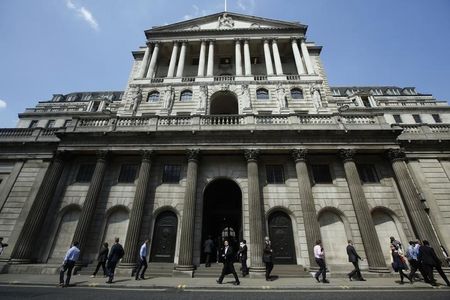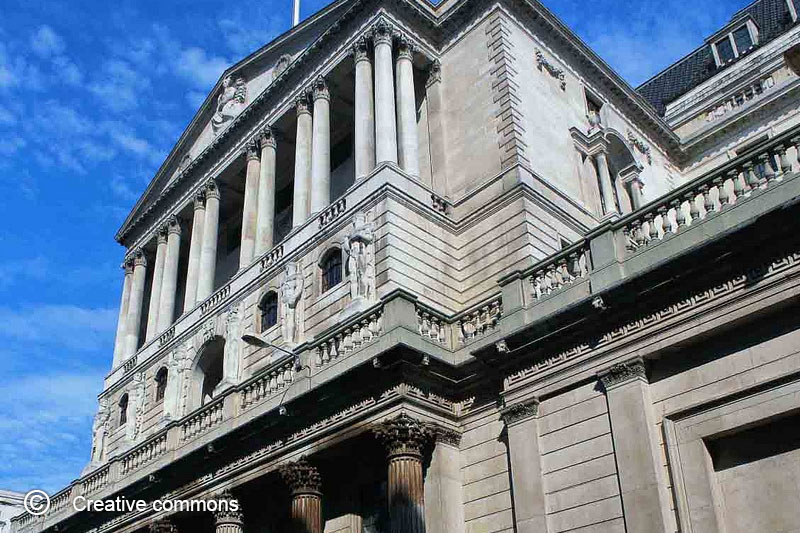By David Milliken
LONDON (Reuters) - The Bank of England revealed on Tuesday how it made a secret recommendation to Britain's finance ministry in September 2011 to prepare for the risk of a euro zone break-up.
The central bank's Financial Policy Committee - which at the time was chaired by former governor Mervyn King - said the finance ministry should plan for how it would rescue Britain's banks if they were hit by a country leaving the euro zone.
At the time, borrowing costs for countries such as Greece, Portugal and Spain were soaring and many economists had doubts about whether the 17-nation currency bloc could hold together.
"The Committee was concerned that conditions in Europe could deteriorate rapidly, with widespread dislocation spreading across interconnected global financial markets," the BoE said.
"Against that backdrop, it thought that HM Treasury should prepare for a full range of eventualities; in some especially severe scenarios, far-reaching solutions might be required."
Some FPC members thought these measures should extend to not paying private-sector holders of bank debt the full amount owed as part of a restructuring process.
The BoE judged at the time that publishing its recommendation was not in the public interest "given the risk of further undermining already fragile market sentiment", it said on Tuesday.
The possibility of more bank bailouts would also have been highly politically sensitive, given public upset at the 65 billion pounds ($111 billion) of public money ploughed into Royal Bank of Scotland (L:RBS) and Lloyds Banking Group (L:LLOY) during the 2008 financial crisis.
The central bank said it had regularly reviewed over the past two-and-a-half years whether it could publish its recommendation, but only felt comfortable doing so now that new legislation to wind up banks in Europe is coming into force.
Other details revealed by the BoE show that in November 2011, Britain's finance ministry was preparing contingency plans to bail out Britain's banks, and emergency legislation to deal with the collapse of a so-called central counterparty, a firm which guarantees trades between financial institutions.
In June 2012 the BoE considered revealing that contingency planning had been done, but concluded that this might do more harm than good if the public feared the plans were inadequate.
Fears of a euro zone break-up eased substantially last year after European Central Bank President Mario Draghi said he would do whatever it took to save the euro.
The FPC considered publishing the BoE's recommendation again in November 2012, September 2013, December 2013 and March 2014, but each time it deemed this against the public interest, partly because it might affect ongoing legislation.

The BoE has the right not to publish material it is normally required to, if thinks it goes against the public interest.
Before today, it was last known to have used this power in December, to keep secret for several months an internal investigation into whether staff had been aware of currency market manipulation.
(Editing by Catherine Evans)
